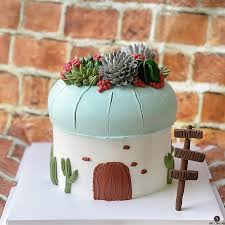Running a Restaurant with Feng Shui Principles: Enhancing Success and Harmony in Your Business

Feng Shui, an ancient Chinese practice, focuses on the harmony between individuals and their environment. It is based on the belief that the layout and design of a space, as well as the elements within it, can influence the flow of energy, or “Chi.” This belief has been applied in various aspects of life, from home décor to business operations. One of the most effective uses of Feng Shui is in the realm of restaurants, where the right ambiance, design, and energy flow can directly impact customer satisfaction, employee well-being, and overall business success.
In this article, we will explore how Feng Shui can be applied to restaurant design and operations. From the interior layout to the choice of colors and lighting, we will look at the key factors to consider when creating a Feng Shui-friendly restaurant that attracts customers and ensures the smooth flow of energy within the space.
1. Understanding Feng Shui in the Context of Business
Feng Shui originated in China over 3,000 years ago and has since spread globally. It is the practice of arranging your environment in such a way that it supports balance, prosperity, and good fortune. The goal is to enhance the flow of Chi, the vital energy that influences all aspects of life, including health, wealth, and relationships.
In the context of running a restaurant, Feng Shui emphasizes creating a welcoming and balanced environment for both customers and staff. The principles of Feng Shui can be used to design spaces that foster positive energy, encourage social interaction, and create a memorable dining experience. A well-designed restaurant, according to Feng Shui, can increase customer satisfaction, boost employee productivity, and ultimately improve the bottom line.
2. Key Feng Shui Principles for Restaurant Design
Several fundamental Feng Shui principles should be taken into account when designing and operating a restaurant. These principles are centered around creating a harmonious atmosphere that attracts good energy. Below, we outline the main Feng Shui elements that should be considered when running a restaurant.
A. The Location of the Restaurant (The ‘Mouth of Chi’)
In Feng Shui, the location of a business plays a critical role in its success. The “mouth of Chi” refers to the entrance, as it is the primary point through which energy enters the space. In the case of a restaurant, the entrance is of utmost importance. It should be easily accessible and inviting to draw in both customers and positive energy. A cluttered or hard-to-find entrance can block the flow of Chi, causing the business to struggle.
Tips for a Feng Shui-friendly restaurant entrance:
- Ensure that the entrance is clean, clear of obstructions, and well-lit.
- The door should open easily and be welcoming.
- The restaurant should have visible signage to attract potential customers.
- Avoid placing large plants or furniture in front of the entrance, as they may block the flow of Chi.
- A well-maintained entryway with natural elements such as plants or flowers can enhance the welcoming atmosphere.
B. The Layout of the Dining Area (The “Command Position”)
The layout of the dining area plays an important role in the flow of energy within the restaurant. In Feng Shui, the “command position” refers to the area where the most important actions happen, such as the position of the restaurant’s cash register or kitchen. It’s important that the restaurant’s layout allows for easy movement, clear sightlines, and a sense of control for both customers and staff.
Key layout considerations:
- Ensure that the kitchen is not directly visible from the dining area, as this can create a sense of imbalance and disrupt the flow of energy.
- Position tables and chairs in a way that allows customers to see the entrance, but avoid seating them directly in line with the door.
- The restaurant’s owner or manager should sit in a “command position” that allows them to have a clear view of the entire dining area and the door.
- Avoid overcrowding the space with too many tables or chairs, as this can create a feeling of chaos and hinder the flow of Chi.
C. Lighting and Color Choices
Lighting and color are two important elements in Feng Shui that can significantly influence the atmosphere of a restaurant. Lighting sets the tone of the space and can either energize or calm customers, depending on how it is used. Similarly, colors can evoke specific emotions and energies, which can either attract positive energy or create a sense of discomfort.
Lighting considerations:
- Use soft, warm lighting to create a welcoming, relaxing ambiance. Avoid overly bright, harsh lights.
- Dim lighting works well for intimate dining areas, while brighter lighting can be used in more energetic spaces like bars or open kitchens.
- Natural light is highly recommended for enhancing Chi and creating a positive, refreshing atmosphere.
Color choices in Feng Shui:
- Red: Known to stimulate appetite and attract good fortune, red is often used in restaurants to encourage customers to eat and enjoy their meal.
- Yellow: Associated with happiness and positivity, yellow is ideal for creating a cheerful and lively environment.
- Green: Symbolizing balance and growth, green is a calming color that represents health and prosperity.
- Earth tones (brown and beige): These colors promote stability and a grounded, peaceful atmosphere, making them suitable for the main dining area.
- Blue and black: These colors are often avoided in Feng Shui for dining areas as they may be seen as too cold or too dark for an inviting atmosphere.
D. The Kitchen and Its Placement
In Feng Shui, the kitchen is seen as the heart of the restaurant. It is believed to influence the overall success of the business by either attracting or repelling wealth. The location of the kitchen and how it is designed can greatly affect the restaurant’s energy flow.
Key kitchen Feng Shui tips:
- The kitchen should be located towards the back of the restaurant, with a clear path from the entrance to the dining area.
- Avoid placing the kitchen directly beneath bathrooms or above a major entrance, as this could create negative energy.
- Ensure the kitchen is kept clean and organized, as chaos in the kitchen can disrupt the flow of energy throughout the restaurant.
- The stove, considered one of the most important appliances in Feng Shui, should be in a commanding position, where the chef can face the door while cooking.
E. Furniture and Decorative Elements
Furniture and decorative items not only serve practical purposes but also affect the energy of the space. Feng Shui emphasizes the use of furniture and decor that promotes comfort, relaxation, and balance.
Feng Shui furniture and decor tips:
- Opt for comfortable, well-crafted furniture that promotes relaxation. Avoid furniture with sharp corners, which are believed to create negative energy.
- Use natural materials like wood, stone, and cotton in the décor to foster harmony and warmth.
- Incorporate plants into the restaurant’s design, as plants symbolize growth and vitality. They can also help purify the air and improve the overall energy of the space.
- Avoid excessive use of mirrors, especially near the entrance or in the dining area. Mirrors can create confusion and disturb the flow of energy.
F. Water Features and Their Importance
Water is an important element in Feng Shui, representing wealth and prosperity. The use of water features in restaurants, such as fountains or aquariums, is believed to attract positive energy and abundance.
Water feature Feng Shui tips:
- Place water features in the southeast corner of the restaurant, which is associated with wealth and abundance in Feng Shui.
- Ensure that water features are well-maintained and that the water is clean, as stagnant or dirty water is thought to bring negative energy.
- Avoid placing water features near the kitchen or bathrooms, as these areas are believed to disrupt the flow of Chi.
3. Staff and Customer Interaction in Feng Shui
In addition to the physical design of the restaurant, Feng Shui also emphasizes the importance of human interaction within the space. The energy and attitudes of the restaurant staff can directly impact the atmosphere and customer experience.
Tips for promoting positive energy between staff and customers:
- Train staff to maintain a positive and friendly attitude. A welcoming atmosphere, where both staff and customers feel comfortable, encourages the flow of good energy.
- Encourage staff to be mindful of their posture and movements, as they can affect the restaurant’s overall energy.
- Consider the flow of Chi in how staff members interact with each other. Ensuring smooth communication and positive relationships among staff members creates a harmonious environment for everyone.
4. Conclusion
Integrating Feng Shui principles into the design and operation of a restaurant can have a profound impact on its success. By focusing on elements like location, layout, color, lighting, and the use of natural elements, restaurant owners can create a space that attracts good energy, improves customer satisfaction, and fosters a harmonious work environment for employees. Whether you’re opening a new restaurant or seeking to improve an existing one, applying Feng Shui can help you achieve a balance that enhances prosperity, health, and overall success.

